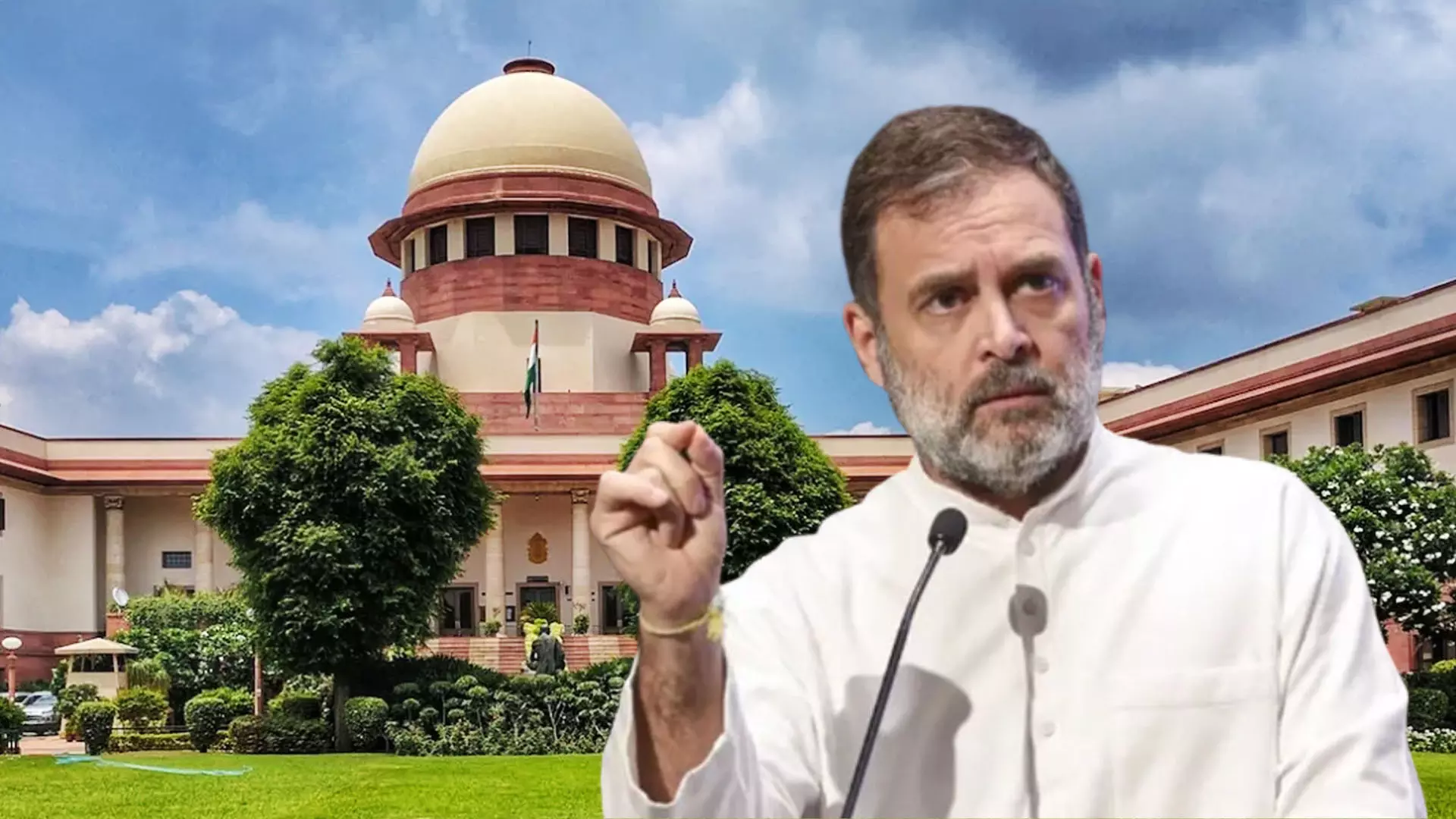
SC slamming Rahul: Has the court crossed boundaries? | Interview
Rahul Gandhi faces heat from the Supreme Court and BJP over his Galwan remark. Did the court's words hand the BJP a new political weapon?

The Supreme Court’s oral observation questioning Congress leader Rahul Gandhi’s patriotism over his remarks on Chinese incursion triggered a fierce political debate. While the court granted a stay on defamation proceedings, its comments about what a "true Indian" should or shouldn't say raised concerns about judicial overreach. The Federal's Political Editor Puneet Nicholas Yadav breaks down the legal, political, and constitutional implications of the episode.
The Supreme Court stayed the defamation proceedings but also remarked that a “true Indian” wouldn’t say such things. How has this remark intensified the political battle between the BJP and Congress?
There were two significant oral observations by the court. One was the now-controversial “true Indian” comment, and the other questioned why Rahul Gandhi didn’t raise the issue in Parliament rather than on social media.
The BJP and NDA latched onto the first remark because it fits their long-standing narrative against Rahul Gandhi and the Congress — that they demoralise the Armed Forces and peddle anti-national propaganda. The court’s remark aligned neatly with that, so the BJP immediately used it to launch another political broadside. This has undeniably escalated the political slugfest between the two parties.
Also read: BJP labels Rahul Gandhi 'China Guru' after SC chides him
Did the Supreme Court cross any constitutional boundaries by making such comments about Rahul Gandhi’s patriotism? Or was it within the court’s rights given the sensitivity of national security matters?
I wouldn't go so far as to say the court crossed constitutional boundaries. Judges often make oral observations during hearings to test arguments or seek clarity. But even if such remarks are part of a cross-examination-like process, judges must be conscious of their broader implications — especially when the remarks are politically loaded.
This isn’t about attributing motives to Justice Dipankar Dutta, but about understanding the fallout. Saying that questioning the government makes someone less of an Indian is deeply problematic. So is asking the Leader of Opposition why he raises issues outside Parliament, especially when Parliament has consistently denied the Opposition a voice. It may not breach the Constitution, but it does raise questions of judicial restraint.
Also read: How SC reprieve to Rahul in China remark case got dwarfed by judge’s ‘political’ rebuke
Priyanka Gandhi said that judges can’t decide who’s a “true Indian.” How is the INDIA bloc responding to these comments — are they turning this into a wider debate about judicial overreach and political targeting?
Yes, the INDIA bloc has rallied behind Rahul Gandhi, and rightly so. Today the court questions him; tomorrow it could be any Opposition leader — or even an ordinary citizen or journalist.
We've seen this pattern before, where dissent or questioning the government leads to legal trouble. Take the Professor Mahmudabad case, for instance. What’s alarming here is that while the court’s formal order gave Rahul Gandhi relief by staying the trial, the oral remarks have overtaken the ruling in the public perception.
That’s the danger. Lower courts might be influenced by what was said in passing, even if it’s not binding. The INDIA bloc is right to push back and argue that courts must not become arbiters of patriotism for those asking uncomfortable questions of the government.
Also read: Priyanka defends Rahul Gandhi, says 'courts do not decide who a true Indian is'
The Supreme Court paused the trial but its oral comments have been widely quoted and politicised. What does this say about how far courts can go in commenting on political matters?
This is the crux of the issue. Article 19(1)(a) of the Constitution guarantees freedom of speech, though it's subject to reasonable restrictions. But those restrictions aren’t meant to turn into censorship or chilling effects.
When a court says someone is “less patriotic” or asks why they’re speaking outside Parliament, it risks crossing into judicial overreach. Free speech, especially political speech, is fundamental to democracy.
Many lawyers and even retired judges I’ve spoken to found the remarks disturbing. Courts must let their orders do the talking — not oral comments that can be misinterpreted or misused. Politicians of all stripes can weaponise such comments to suit their narratives, and that risks undermining both judicial credibility and democratic discourse.
Also read: SC judge's remarks against Rahul Gandhi immature: Ex-CJ Govind Mathur | Interview
(The content above has been generated using a fine-tuned AI model. To ensure accuracy, quality, and editorial integrity, we employ a Human-In-The-Loop (HITL) process. While AI assists in creating the initial draft, our experienced editorial team carefully reviews, edits, and refines the content before publication. At The Federal, we combine the efficiency of AI with the expertise of human editors to deliver reliable and insightful journalism.)

